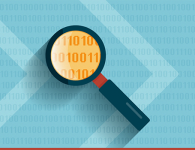

Alex Zhavoronkov, CEO of Insilico Medicine, a startup that generates potential drugs using artificial intelligence, was recently given a challenge by one of his pharma company partners. His team would see how quickly Insilico’s AI could identify new molecules that bind with a protein associated with tissue scarring. Then they’d put the molecules to the test, synthesizing a few of them in the lab to see if the AI was onto something, or only dreaming.
Why the rush? It now costs $2.6 billion, by one estimate, to get a new drug to market, and pipelines are only getting slower and more expensive. There’s hope—and hype—that AI could help chip away at that figure by reducing the time and labor before a drug starts clinical trials. The idea is that the same techniques used to generate realistic deepfakes and deftly play Go might be able to decipher the complex rules of drug design and generate molecules from scratch.
There are signs AI has potential. In December, Alphabet’s DeepMind debuted AlphaFold, an algorithm designed to predict protein folding—an important step for identifying potential disease targets. It beat the longstanding competition in the pharmaceutical industry, handily. Still, some experts remain skeptical of whether AI can dream up molecules that are both effective and truly practical.
On Monday, the AI drug explorers got some validation with the results of Zhavoronkov’s challenge, published in Nature Biotechnology. The team, along with collaborators at the University of Toronto, took 21 days to generate 30,000 designs for molecules targeting a protein involved in fibrosis. They synthesized six in the lab, of which four showed potential promise in initial tests. Two were then tested in cells, and the most promising one in mice. The team found their AI-generated molecule was both potent against the targeted protein and also displayed qualities that could be considered “drug-like.”
There’s merit in AI specialists doing that kind of real biology, says Mohammed AlQuraishi, a systems biologist at Harvard who wasn’t involved in the research. “The big new thing about this is actually testing these predictions,” he says. Lots of people are designing machine learning pipelines to produce virtual molecules, but relatively few have published research validating the work in the lab. Insilico’s work takes an extra step forward, AlQuraishi adds, in showing that its AI can be tailored to generate molecules that not only bind to a particular target, but behave well in cells and animals. That’s necessary for any potential drug candidate.
“That’s what pharma wants to see,” says Zhavoronkov. The favorable results in cells and mice were a pleasant surprise; he’d expected the AI-generated molecules would require more tweaks and rounds of computations before they found one with potential.
“It’s cool to see AI trained to think a little bit like how a medicinal chemist thinks,” says Adam Renslo, a professor of chemical biology at the University of California-San Francisco who also wasn’t involved in the research. Computational drug discovery has traditionally involved brute force methods of looking through millions of potential structures, with limited payoff. “This algorithm involves a creative process, not a data mining process,” he says.
The AI-generated molecules appear novel, Renslo says, and some could even be called creative in design. But the paper is best regarded as a proof-of-concept, he notes. The molecules aren’t a slam dunk, and would take perhaps a year of lab work to refine—meaning the AI wouldn’t save a big pharma company much time, if any. Plus, while the system was impressive at generating lots of candidate molecules, it was working in a niche where there’s plenty of data for the system to learn from. “It’s a suitable place to start, but it would be harder for the AI to solve a drug discovery problem where there isn’t data to start from,” Renslo says.
read more at https://www.wired.com/latest by Gregory Barber
Tech









